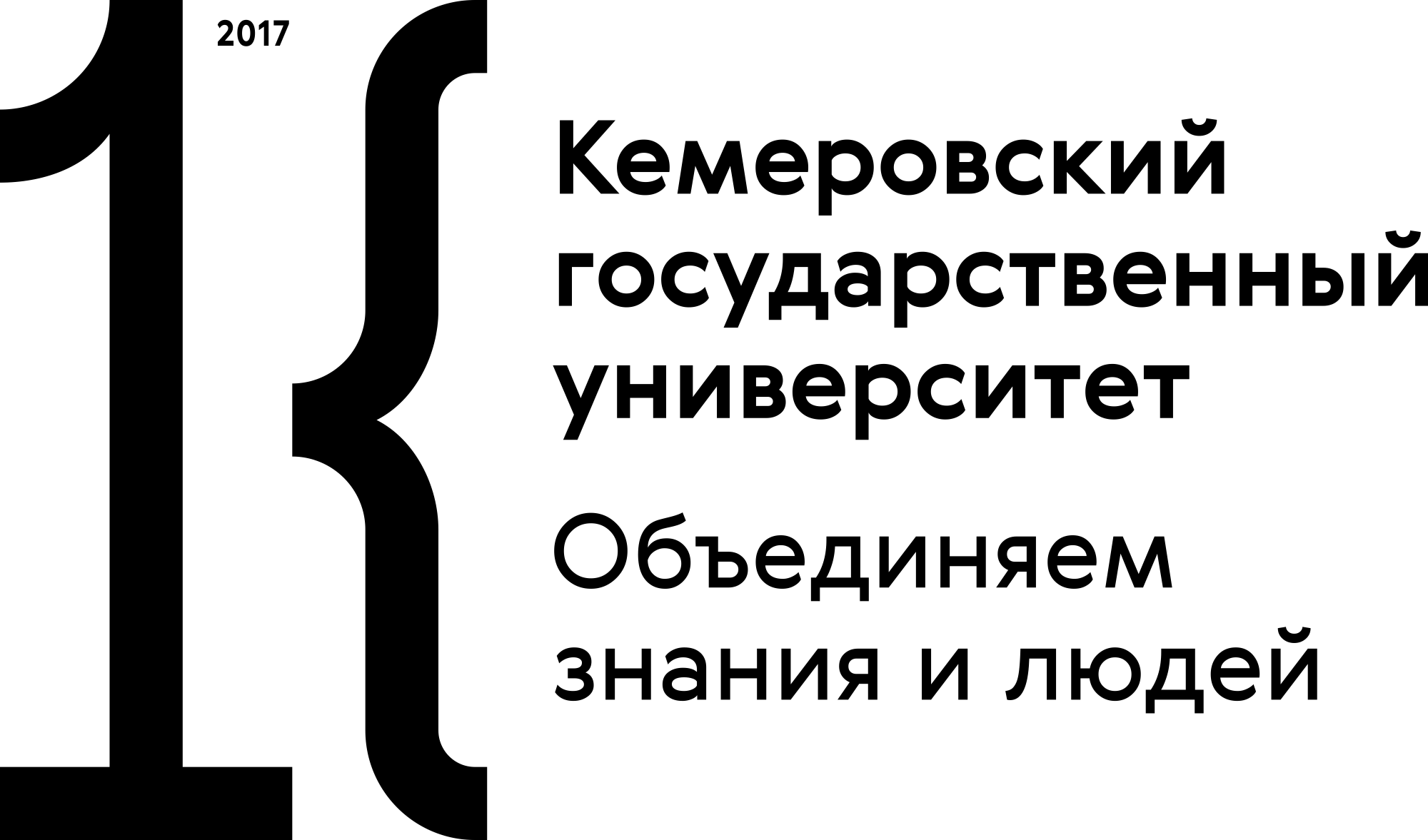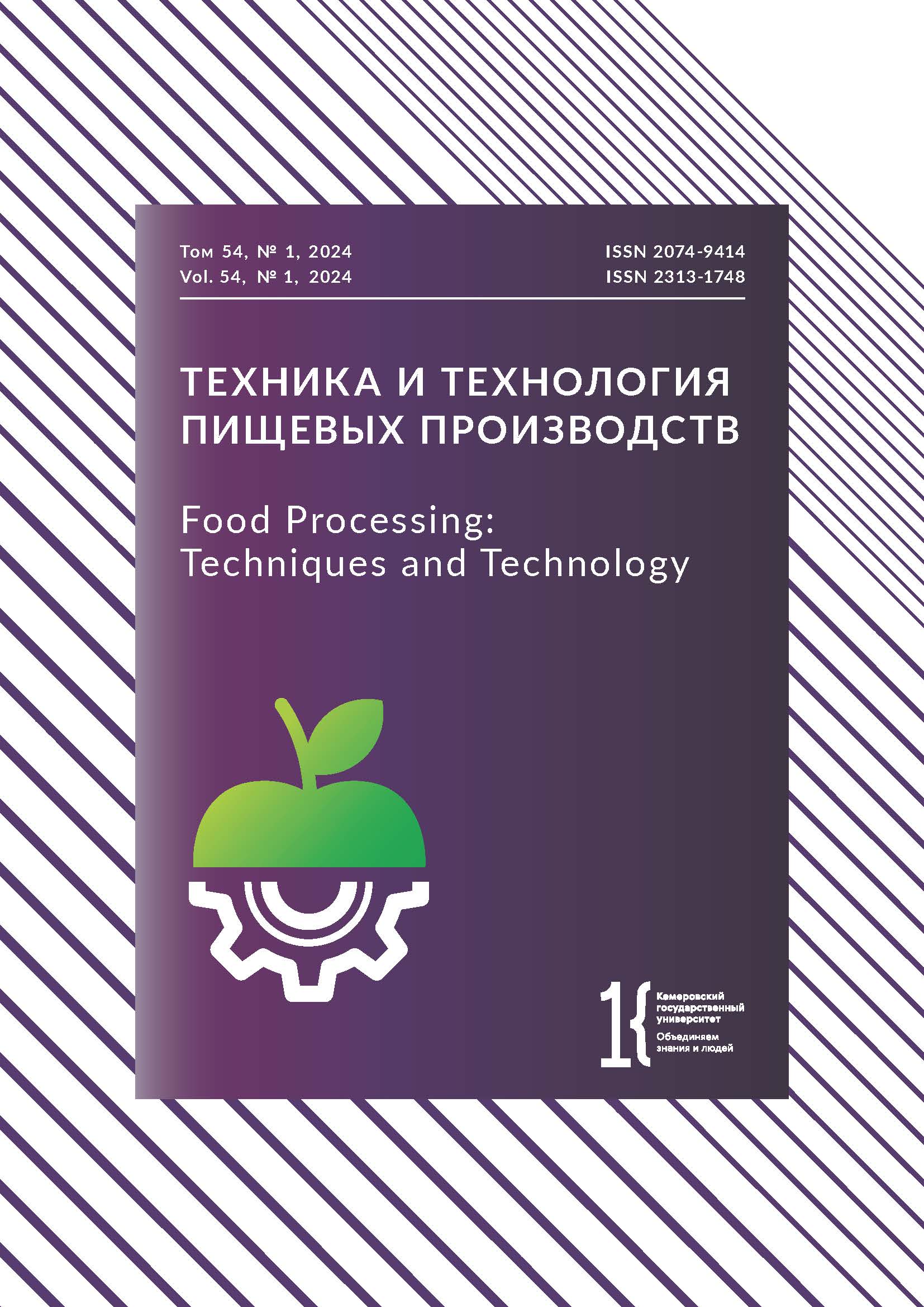Yalta, Simferopol, Russian Federation
Yalta, Simferopol, Russian Federation
Yalta, Russian Federation
UDC 63
Most domestic sparkling wines are made of traditional champagne grape varieties. However, indigenous Crimean cultivars could increase the output of high-quality original beverages if a proper technology was introduced. This research featured young sparkling wines from Crimean grape varieties, i.e., Soldaya, Shabash, Kokur Beliy, Sary Pandas, Kefesiya, Dzhevat Kara, and Ekim Kara. Organic acids, sugars, glycerin, phenolic substances, and ethanol were determined by high performance liquid chromatography; the content of amine nitrogen was measured by formalin titration. The optical profile of the wine samples was subjected to the colorimetric method while their foamy properties were studied by bubbling the samples in a measuring cylinder. The sparkling properties depended on the rate of CO2 desorption; the volumetric method made it possible to define the CO2 content; the viscosity was measured using a viscometer. The sensory assessment followed State Standard 32051-2013, ISO 5492:2008, and ISO 11035:1994. The samples of Kokur Beliy, Sary Pandas, and Soldaya received high tasting ratings (≥ 9.0 points), as did the red variety of Kefesiya (8.95 points). They demonstrated a clear typical aroma and a harmonious taste, as well as good foamy and sparkling properties. The maximal foam volume correlated with amine nitrogen (r = 0.762) while the sparkling properties correlated with the mass fraction of bound CO2 (r = 0.977). The red sparkling wine from the Kefesiya variety had a dark garnet color due to its high anthocyanins. It also contained quercetin and glycoside, which are known for their biological (P-vitamin) activity and powerful antioxidant properties. The early low-sugar (< 18 g/100 cm3) varieties of Dzhevat Kara and Ekim Kara had the same acidity but demonstrated a less diverse phenolic profile and were paler in color. In this research, the indigenous Crimean grape cultivars of Kokur Beliy, Sary Pandas, Soldaya, and Kefesia showed good prospects for young sparkling wines. Other varieties needed special technologies to preserve their typical properties and the aroma/taste balance. The new technology makes it possible to obtain unique high-quality products right in the harvest year, thus increasing the range and volume of sparkling wine production.
Wine, grapes, autochthonous grape varieties, foamy and sparkling properties, yeast, descriptors, phenolic substances, organic acids, aroma, taste
1. Jeandet P, Vasserot Y, Liger-Belair G, Marchal R. Sparkling wine production. In: Joshi VK, editor. Handbook of enology: Principles, practices and recent innovations. Vol. 3. Asiatech Publishers; 2011. pp. 1-52.
2. Lutkov IP, Yermolin DV, Zadorozhnaya DS, Lutkova NYu. Perspective yeast races for young sparkling wines with a muscat aroma. Food Processing: Techniques and Technology. 2021;51(2):312-322. (In Russ.). https://doi.org/10.21603/2074-9414-2021-2-312-322
3. Ganich VA, Naumova LG, Matveyeva NV. Don autochthonous grapevine varieties for expanding the assortment of vineyards in the lower Don region. Fruit Growing and Viticulture of South Russia. 2020;(63):30-44. (In Russ.). https://doi.org/10.30679/2219-5335-2020-3-63-30-44
4. Mukailov MD, Isrigova TA, Salmanov MM, Magomedov MG, Makuev GA. Technological features of autochton technical varieties of grapes in the conditions of South Dagestan. Daghestan GAU Proceedings. 2021;12(4):35-40. (In Russ.). https://www.elibrary.ru/KPRCRE
5. Ganich VA. Autochthonous grapevine varieties of Georgia as sources for breeding. Russian grapes. 2022;19:10-16. (In Russ.). https://doi.org/10.32904/2712-8245-2022-19-10-16
6. Ilnitskaya E, Makarkina M, Stepanov I, Avidzba M, Malandzia V. Study of the unknown vine genotype found in Abkhazia. BIO Web of Conferences. 2020;25. https://doi.org/10.1051/bioconf/20202502008
7. Iliev A, Yankova P. The local grape varieties of Bulgaria. Viticulture Studies. 2021;1(1):21-28. https://doi.org/10.52001/vis.2021.3
8. Yoncheva T, Kantor A, Ivanišova E, Nikolaieva N. Chemical, sensory and antioxidant characteristics of Bulgarian wines from native cultivars. Croatian Journal of Food Technology, Biotechnology and Nutrition. 2019;14(1-2):53-59. https://doi.org/10.31895/hcptbn.14.1-2.1
9. Hajdu E. Viticulture of Hungary. Acta Agraria Debreceniensis. 2018;150:175-182. https://doi.org/10.34101/actaagrar/150/1713
10. Miliordos DE, Merkouropoulos G, Kogkou C, Arseniou S, Alatzas A, Proxenia N, et al. Explore the rare - Molecular identification and wine evaluation of two autochthonous greek varieties: “Karnachalades” and “Bogialamades”. Plants. 2021;10(8). https://doi.org/10.3390/plants10081556
11. Copper AW, Collins C, Bastian S, Johnson T, Koundouras S, Karaolis C, et al. Vine performance benchmarking of indigenous Cypriot grape varieties Xynisteri and Maratheftiko. OENO One. 2020;54(4):935-954. https://doi.org/10.20870/oeno-one.2020.54.4.3863
12. De Michele R, La Bella F, Gristina AS, Fontana I, Pacifico D, Garfi G, et al. Phylogenetic relationship among wild and cultivated grapevine in Sicily: A hotspot in the middle of the Mediterranean basin. Frontiers in Plant Science. 2019;(10). https://doi.org/10.3389/fpls.2019.01506
13. Sancho-Galán P, Amores-Arrocha A, Palacios V, Jiménez-Cantizano A. Identification and characterization of white grape varieties autochthonous of a warm climate region (Andalusia, Spain). Agronomy. 2020;10(2). https://doi.org/10.3390/agronomy10020205
14. Sancho-Galán P, Amores-Arrocha A, Palacios V, Jiménez-Cantizano A. Preliminary study of somatic variants of Palomino Fino (Vitis vinifera L.) grown in a warm climate region (Andalusia, Spain). Agronomy. 2020;10(5). https://doi.org/10.3390/agronomy10050654
15. Sancho-Galán P, Amores-Arrocha A, Palacios V, Jiménez-Cantizano A. Genetical, morphological and physicochemical characterization of the autochthonous cultivar “Uva Rey” (Vitis vinifera L.). Agronomy. 2019;9(9). https://doi.org/10.3390/agronomy9090563
16. Jiménez-Cantizano A, Amores-Arrocha A, Gutiérrez-Escobar R, Palacios V. Identification and relationship of the autochthonous “Romé” and “Rome Tinto” grapevine cultivars. Spanish Journal of Agricultural Research. 2018;16(4).
17. Wang F, Yao M, Breahna E, Arpentin G. Sensory evaluation of Fetească Neagră wine in Republic Moldova. Magarach. Viticulture and Vinemaking. 2022;24(1):90-94. https://doi.org/10.35547/IM.2022.38.66.014
18. Margaryan K, Maul E, Muradyan Z, Hovhannisyan A, Devejyan H, Melyan G, et al. Armenian national grapevine collection: Conservation, characterization and prospects. BIO Web of Conferences. 2019;12. https://doi.org/10.1051/bioconf/20191201002
19. Margaryan K, Kuchukyan E, Melyan G. Strategy of preservation and revival of vanishing native grape varieties in Armenia. Viticulture and Winemaking. 2020;49:65-67.
20. Tkachenko OB, Trinkal OV. The aroma peculiarities of some white wines from autochthonous grapes varieties from Western Europe and Ukraine. Eastern-European Journal of Enterprise Technologies. 2015;2(10):40-45. (In Russ.).
21. Iukuridze EhZh. Results of examinations of Shabo terroir wines physical chemical properties. Technology Audit and Production Reserves. 2015;2(4):19-22. (In Russ.).
22. Natic M, Dabi Zagorac D, Gašić U, Dojčinović B, Ćirić I, Relić D, et al. Autochthonous and international grape varieties grown in Serbia - Phenolic and elemental composition. Food Bioscience. 2021;40. https://doi.org/10.1016/j.fbio.2021.100889
23. Lakićević SH, Karabegović IT, Cvetković DJ, Lazić ML, Jančić R, Popović-Djordjević JB. Insight into the aroma profile and sensory characteristics of “Prokupac” Red wine aromatised with medicinal herbs. Horticulturae. 2022;8(4). https://doi.org/10.3390/horticulturae8040277
24. Pavlešić T, Martinović LS, Peršurić Ž, Maletić E, Mihaljević MŽ, Stupić D, et al. From the autochthonous grape varieties of the Kastav region (Croatia) to the Belica wine. Food Technology and Biotechnology. 2022;60(1):11-20. https://doi.org/10.17113/ftb.60.01.22.7264
25. Maraš V, Tello J, Gazivoda A, Mugoša M, Perišić M, Raičević J, et al. Population genetic analysis in old Montenegrin vineyards reveals ancient ways currently active to generate diversity in Vitis vinifera. Scientific Reports. 2020;10. https://doi.org/10.1038/s41598-020-71918-7
26. Ilina Dumitru AM, Manolescu AE, Sumedrea DI, Popescu CF, Cosmulescu S. Genetic diversity of some autochthonous white grape varieties from Romanian germplasm collections. Czech Journal of Genetics and Plant Breeding. 2023;59(2):55-66. https://doi.org/10.17221/45/2022-CJGPB
27. Shecori S, Kher MM, Tyagi K, Lerno L, Netzer Y, Lichter A, et al. A field collection of indigenous grapevines as a valuable repository for applied research. Plants. 2022;11(19). https://doi.org/10.3390/plants11192563
28. Ayoub M-J, Legras J-L, Abi-Nakhoul P, Nguyen H-V, Saliba R, Gaillardin C. Lebanon’s native oenological Saccharomyces cerevisiae flora: Assessment of different aspects of genetic diversity and evaluation of winemaking potential. Journal of Fungi. 2021;7(8). https://doi.org/10.3390/jof7080678
29. Marsal G, Méndez JJ, Mateo JM, Ferrer S, Canals JM, Zamora F, et al. Molecular characterization of Vitis vinifera L. local cultivars from volcanic areas (Canary Islands and Madeira) using SSR markers. OENO One. 2019;53(4). https://doi.org/10.20870/oeno-one.2019.53.4.2404
30. Volynkin V, Polulyakh A, Levchenko S, Vasylyk I, Likhovskoi V. Autochthonous grape species, varieties and cultivars of Crimea. Acta Horticulturae. 2019;259:91-98. https://doi.org/10.17660/ActaHortic.2019.1259.16
31. Levchenko S, Likhovskoi V, Vasylyk I, Volynkin V. Phenolic compounds in the Crimean autochthonous grape cultivars. Acta Horticulturae. 2021;1308:181-188. https://doi.org/10.17660/ActaHortic.2021.1308.26
32. Ostroukhova E, Levchenko S, Vasylyk I, Volynkin V, Lutkova N, Boyko V. Comparison of the phenolic complex of Crimean autochthonous and classic white-berry grape cultivars. E3S Web of Conferences. 2020;161. https://doi.org/10.1051/e3sconf/202016101059
33. Makarov A, Lutkov I, Shmigelskaya N, Maksimovskaia V, Sivochoub G. Using of autochthonous grape varieties in the production of sparkling wines. BIO Web of Conferences. 2021;39. https://doi.org/10.1051/bioconf/20213907001
34. Velázquez R, Zamora E, Álvarez ML, Ramírez M. Using Torulaspora delbrueckii killer yeasts in the elaboration of base wine and traditional sparkling wine. International Journal of Food Microbiology. 2019;289:134-144. https://doi.org/10.1016/j.ijfoodmicro.2018.09.010
35. Makarov AS, Lutkov IP. Yeast race effect on the quality of base and young sparkling wines. Foods and Raw Materials. 2021;9(2):290-301. https://doi.org/10.21603/2308-4057-2021-2-290-301
36. Merzhanian AA. Physics and chemistry of sparkling wines. Moscow: Pishchevaya promyshlennostʹ; 1979. 271 p. (In Russ.).
37. Niimi J, Boss PK, Bastian SEP. Sensory profiling and quality assessment of research Cabernet Sauvignon and Chardonnay wines; quality discrimination depends on greater differences in multiple modalities. Food Research International. 2018;106:304-316. https://doi.org/10.1016/j.foodres.2017.12.060
38. Batçıoğlu K, Küçükbay F, Alagöz MA, Günal S, Yilmaztekin Y. Antioxidant and antithrombotic properties of fruit, leaf, and seed extracts of the Halhalı olive (Olea europaea L.) native to the Hatay region in Turkey. Foods and Raw Materials. 2023;11(1):84-93. https://doi.org/10.21603/2308-4057-2023-1-557
39. Büyükkormaz Ç, Küçükbay FZ. Kumquat fruit and leaves extracted with different solvents: phenolic content and antioxidant activity. Foods and Raw Materials. 2022;10(1):51-66. https://doi.org/10.21603/2308-4057-2022-1-51-66.











